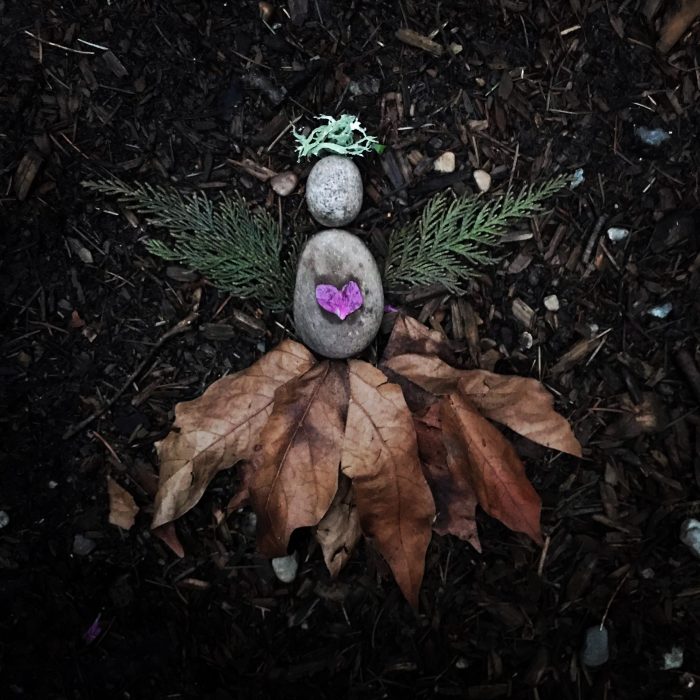Psychology has shown us that the more heightened our emotions are during any given experience, the more formidable the resulting memory of that event becomes. It’s no wonder then that some of my most vivid memories surrounding religion were formed under the emotions of rejection, shame and anger.
The first time I remember “God” pointing his finger at me, I was in a Catholic church with my father. My parents had recently separated, and my Dad — a Catholic schoolboy turned pot smoking hippie — was exploring religion again, hoping to find his footing in the world.
I was a young girl, all of seven or maybe eight years old. My world had been rocked by the divorce. Like my dad, I struggled to adjust to the new normal I found myself thrust into. Two houses. Packing and unpacking. Greyhound bus rides.
I wasn’t sure about church. It was foreign territory, a far cry from the backyard potlucks and community contra dances I was more accustomed to.
Yet there was a certain curiosity and mysticism around this age old institution. The weathered stone building intrigued me; the stained glass drew me in. I remember focusing on the prize at the end of what seemed like endless ceremony — donuts in the church basement.
Ah, donuts: sustenance of the devoted, but also forbidden fruit in my world. In my house, under the direction of my health-food loving, food co-op shopping mom, molasses was about as sweet as it got. Maybe a carrot cake on birthdays. Blech. As a child, I would do almost anything for a donut.
So church won me over with donuts. I found the music appealing also, except for the fact I really didn’t know any of the words. I didn’t hate going to church, but I’m also not sure I loved it. I was beginning to adjust to this new ritual and even looked past the fact that it absorbed a good two hours of valuable cartoon viewing time on Sunday mornings.
Then, a few weeks into Dad’s church reintegration, he offered to walk me up for communion. I guess I hadn’t realized we had been sitting this part out. I’m not sure how he had explained our nonparticipation to me — the line is too long? They give kids wine!? — whatever the explanation had been, it was good enough that I didn’t question it; nor did I feel left out.
I took my Dad’s hand and followed him up to the altar. What could go wrong? We waited through the line, and as we neared the offering table, my dad was approached by the Priest.
“Has she been baptized into the church?” Father’s eyes bounced from me to Dad and back again. The searing heat of shame engulfed me. My dad, taken aback, responded honestly, “Well, no. This is my daughter, and she is here as my guest.”
“She can’t receive communion unless she has been baptized.” With those simple words, Father turned and walked back toward the offering table.
In that very moment, my entire world changed.
In one 30-second exchange, I had been rejected, marked as ‘other’ — dirty, damaged, less than holy, an intruder among God’s chosen children.
The pain and humiliation I felt in that moment ensured I’d never forget it. My self-image was changed. The Catholic Church, and organized religion in general, had left its mark on me.
As the years went on and life experience expanded, I learned once again to feel comfortable in my own ‘heathen’ skin. I attuned to my inner moral code and allowed it to be my compass in the outer world. I noticed the law of karma generally holds true, and that prayer or meditation works most of the time. I learned that being a good human does not require one to automatically subscribe to religion.
Yet even through these discoveries, I continued to watch the same themes play out over and over again. Label, judge, shun, exclude — all in the name of God.
Now, I am a mother myself and have seen my children questioned about whether they go to church or asked to explain why they do not. As a third grader, my younger daughter even had a classmate declare, “I can’t be friends with you because you don’t go to church.”
Why do we do this to each other? When there are so many opportunities to see the commonality within our human bond, why do we so easily focus on the differences? Where does this ignorant sense of piety come from? It’s not from God; of this, I am sure.
Imagine the progress we could make as a species if we quit judging, categorizing and condemning people on the basis of their religious philosophy.
What if, as a human race, our litmus test was ‘how does your spirit see my spirit?’ How grounded do I feel in your presence? Is your kindness and generosity — your authenticity — apparent in the ways you interface with the community around you?
“God,” love, or divine energy, lives within us all. It is there all the time, without contract or condition. Therefore, we don’t need a church or a priest to lead us to God. All we need is to get quiet and listen. Then, only then, can we turn outward and begin to recognize God in everything.
I’d like to see religion move out of fear tactics and exclusion. We stymie progress when we shame and hurt one another. Never in our lifetimes has this been more evident than today. Never before have we needed more God and less religion, more acceptance and less division, more love and less hate.
Never before have we needed each other — and God — as we do now.












Read 5 comments and reply